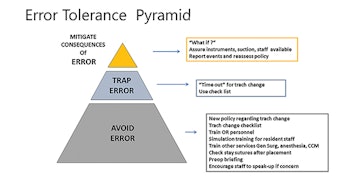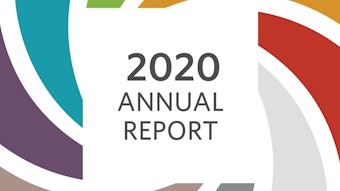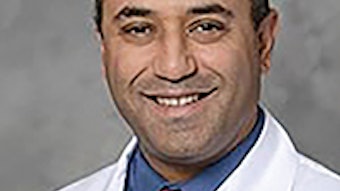Advocacy Issue Brief: Audiology and Speech-Language Pathology Interstate Compact
Several years ago the Council of State Governments (CSG) was asked to develop a model compact for allied health professionals, in this case, audiologists and speech-language pathologists. CSG is an organization committed to working with state officials to shape public policy and includes a program dedicated to developing interstate compacts.
History of the ASLP Interstate Compact
Several years ago the Council of State Governments (CSG) was asked to develop a model compact for allied health professionals, in this case, audiologists and speech-language pathologists. CSG is an organization committed to working with state officials to shape public policy and includes a program dedicated to developing interstate compacts. CSG received funding from the American Speech-Language-Hearing Association and the National Council of State Boards of Examiners to draft their compact. Two years ago the American Academy of Otolaryngology–Head and Neck Surgery (AAO-HNS) was invited to share comments on the proposed draft of the Audiology and Speech-Language Pathology Interstate Compact (ASLP-IC). Unfortunately the Academy’s stated comments and concerns on the draft were ignored. The flawed compact was subsequently introduced in 12 state legislatures beginning in January 2020.
Advocacy
Unable to have our concerns heard, the AAO-HNS worked with the American Medical Association (AMA) to craft amendatory language that would clarify and improve the compact. Wherever possible the Academy works with state otolaryngology societies and state medical societies to urge state legislators to add the AAO-HNS/AMA amendments to the bill.
What Is the ASLP-IC?
The proposed ASLP-IC is distinctly different than most of the other health professional licensure compacts. It is a “privilege to practice” compact that gives legal authority for the practice of audiology/speech pathology in a remote state without an additional license. This is achieved by simply applying to notify another member state in the compact that the individual will be practicing there. This model is very different than the Medical Licensure Compact that creates a voluntary expedited license.
What Are the Major Issues with the ASLP Compact?
Briefly, there are seven major issues with the compact.
- The proposed compact creates a Commission with the power to override state laws. The states participating in the compact will have the ability to adjust scope of practice to mirror the requirements of the least restrictive states. This would allow members of the compact to bypass those states with stronger standards of practice in place designed to protect the public and maintain patient safety. Therefore, under the section titled “Establishment of the Audiology and Speech-Language Pathology Compact Commission,” a new subsection should be added: D.The Commission shall have no authority to change or modify the laws of the member states, which define the practice of audiology and speech-language pathology in the respective states.
- A lack of transparency by the Commission. There are no requirements in the compact for minutes of the Commission to be made available to the public. A sentence should be added to the language addressing the meetings of the Commission and the Executive Committee meetings: All minutes and documents of meetings, other than closed meetings, shall be made available to members of the public.
- Weak definition of telehealth and practice statement. There should be assurances that the application of telecommunication meets the appropriate standard of care by amending the definition of telehealth to include the additional wording: “Telehealth means the application of telecommunication, audiovisual or other technologies that meet the applicable standard of care to deliver…” In alignment with this, it should be specified that compact licensees providing telehealth services must follow the telehealth laws and regulations of the client’s locale. Many states already have telehealth standards in place for the protection of the patient. These existing state provisions should be recognized by adding an additional paragraph under the section titled “Compact Privilege to Practice Telehealth”: A licensee providing audiology or speech-language pathology telehealth services in a remote state under the compact privilege shall function within the laws and regulations of the state where the patient/client is located.
- Inadequate oversight of the Commission. Of concern in the section titled “Oversight, Dispute Resolution and Enforcement,” the section on “Oversight” is conspicuously missing and is therefore not addressed. Written information is needed on how the Commission plans to conduct oversight.
- Physician members are excluded. By statute, physicians are appointed members of the audiology/speech pathology licensing boards in 24 Despite this requirement, in the section titled “Establishment of the Audiology and Speech-Language Pathology Compact Commission” that describes eligible delegates to the Commission, physician members are excluded. This means the composition of the Commission will not mirror the required board representation in nearly half the states. This omission sacrifices valuable collaboration and oversight that is in place to protect the public.
- Universal licensure. Unlike the medical licensure compact where a physician must already be licensed to practice in a state, this compact creates and dictates uniform licensure for two very different professions. This is detailed in the section titled “State Participation in the Compact.” Some of the organizations that helped craft the compact language have had universal licensure as a goal for many years. The rationale has been that it would increase accessibility to and reimbursement from third party payer sources. This is an unusual and inappropriate vehicle to use to establish such licensure.
- Active duty military. The compact calls for active duty military (most of whom are already exempted in state occupational licensure laws) or their spouse to retain their home state designation. This is an unnecessary provision in the compact despite being used to garner support for the compact; most states have already addressed this issue. According to the U.S. Department of Defense, 39 states have already enacted laws that allow for endorsement of a current license from another state, 42 states have passed temporary licensure laws, 31 states now have laws for expedited applications procedures, and 24 states have laws that utilize all three methods on behalf of military spouses. In addition the National Defense Authorization Act allows up to $1,000 for relicensure and costs related to relocations.
How Is the Compact Financed/How Will It Impact the States?
The Compact Commission will levy and collect an annual assessment from each member state or impose fees on other parties to cover the cost of operations. The amount will be formulated by the Commission and will be binding upon all member states. At the present time, the amount that this will impose upon each state’s budget is unknown. Fiscal concerns have been noted in multiple states, particularly as the compact would commit state agencies to unknown amounts that cannot be budgeted. This is also onerous on a state that wishes to withdraw from the compact. In addition to a legislative repeal of the statute, the state’s withdrawal is not effective until six months after the enactment of the repeal. The state would likely still have to continue to pay its membership fee for half a year even after it has withdrawn from the compact.
Some state legislative analysts also noted that for the processing of the new “privilege to practice” applications, there will be little time savings and a likely increase in the overall regulatory burden.
How Many States Must Join the Compact to Become Effective?
This interstate contract must be agreed to and passed by 10 state legislatures to become effective.
What Is the Current Status of Compact Legislation?
During the tumultuous 2020 sessions, 12 states introduced the compact in their legislature. The following is the current status:
- Five bills were killed or died in Alabama, Kansas, Kentucky, Maryland, and Nebraska.
- Six bills passed in various forms:
- Utah and West Virginia passed with the AAO-HNS/AMA amendments
- Georgia’s bill was vetoed by the governor
- Louisiana, North Carolina, Oklahoma, and Wyoming passed unamended
- Bills that have been prefiled for the 2021 session:
- Kentucky – BR 244
- New Hampshire – LSR 136
If you need additional information, please contact the AAO-HNS Advocacy Team at stateleg@entnet.org.










